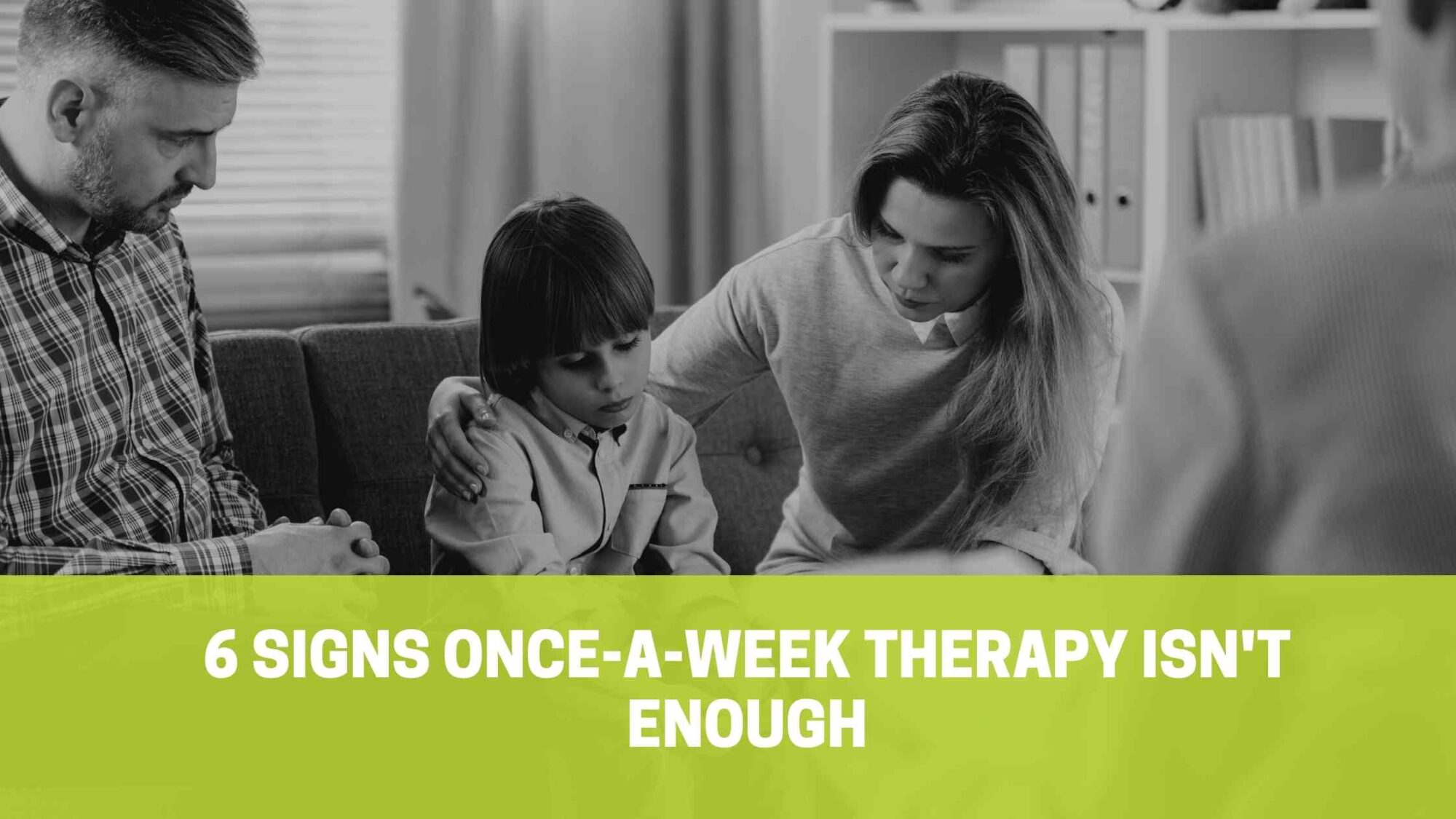Is your child’s weekly therapy enough to meet their needs? Ups and downs during treatment are normal. However, you should still see continued movement towards your child’s treatment goals. When there is a lack of progress, or a halt in progress, despite consistent attendance in therapy, it is time to talk to your child’s therapist about a different treatment approach and /or increased intensity.
Some children may go through seasons where once-a-week therapy is not enough and that is okay. You and your therapist may consider increasing the intensity of your child’s treatment based on the following factors:
Outside Stressors
Therapy helps children learn new coping skills and deal with daily stressors. However, if your child is being exposed to ongoing heightened stress, they may not be in the brain space to learn and use those tools. When your child’s stressors increase beyond their coping capacity, additional support can be helpful. Additional supports can help shift their state of mind to better learn (and use!) new coping skills.
Behavior & Body Language
When you are sharing with your therapist about what is happening at home, think about what you notice in your child’s behaviors and body language. If your child does not seem to want to change, appears to not care about their behavior, or overall seems stuck, they likely need more support than just weekly therapy sessions.
Safety
Safety is always the most important consideration. Change will not and can not happen if the child is not or does not feel safe. If there is a presence of self harm, suicidality, homicidal thinking or risk, or if there is aggressive behavior that is progressing, it is time to add additional supports to your child’s treatment plan. This is especially true if these thoughts or behaviors do not improve following interventions that include identifying triggers, being proactive, and changing parenting strategies.
History
Your child’s history can be a major clue when considering the level of care that is most appropriate. If your child has experienced multiple hospitalizations or multiple calls to 911/ER in response to unsafe behaviors we would encourage a more intense or frequent treatment plan that extends past weekly sessions.
Secondary Trauma
The impact of your child’s behavior on other members of the family is an important fact to consider.
Your Instincts
You know best. You know your child better than anyone, listen to what your gut tells you and talk to your therapist about how to make treatment best support your child.

